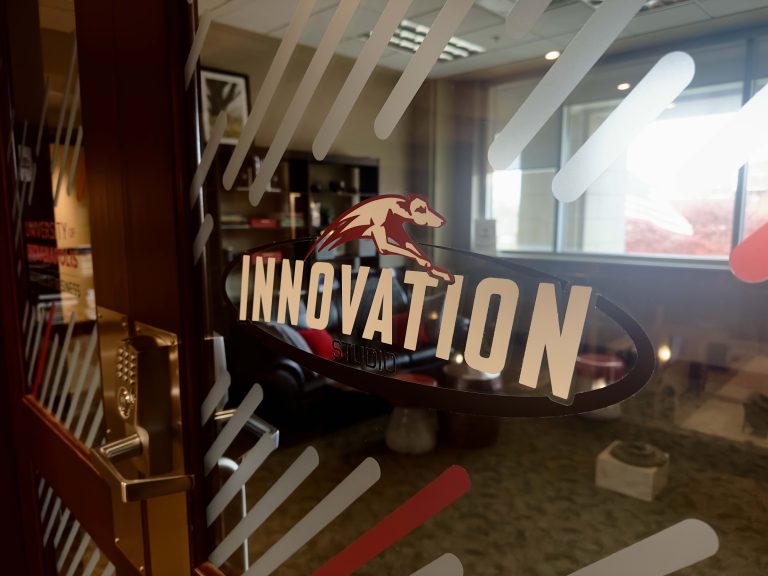Although the University of Indianapolis is associated with the Methodist Church, UIndy is home to different cultures and faiths, and within those different groups fall both students and professor of questioning or of no faith, such as agnostics and atheists. An agnostic is someone who refrains from practicing a traditional religion, but may still believe in a god. An atheist is someone who completely denies the existence of any god or diety.
“I would define myself as agnostic, but I would say I explicitly reject traditional religions,” Assistant Professor of History and Political Science Chad Martin said. “There are different ways of looking at agnosticism, and you could say, ‘I leave myself open to the possibility that Christianity is right,’ and I don’t. I’m not going to say there is no higher power because I think it’s really arrogant for human beings to deny the existence of something that is so much bigger than them.”
Martin turned away from the church at around 14 years old.
“I can say that I was raised religious and I can walk away from that pretty confident that I’m not going back,” Martin said.
Martin found the accepting nature of UIndy to be refreshing.
“I wasn’t attracted to UIndy for the religious aspect, obviously, but it wasn’t so religious that it repelled me,” Martin said. “There are certain institutions where you have to sign a statement of faith to teach, and obviously I couldn’t do that.”
Assistant Professor of Philosophy and Religion Joshua Mills-Knutsen does not put himself under the category of atheist or agnostic but does not involve religion in any part of his life.
“For me, it’s not a question of whether or not God exists. For me, it’s a question of what role God or religious beliefs plays in one’s daily life,” Mills-Knutsen said. “And for me, it doesn’t play any. It just does not impact my decision-making. It’s not as simple as saying atheism, agnosticism or anything like that; it’s rather a question of impact, and it just doesn’t impact me.”
Mills-Knutsen said he has found that the student body remains largely unmotivated religiously in class discussions and academic decision-making.
“Certainly I find the [UIndy] students to be open-minded,” Mills-Knutsen said. “I’m not clear on what the religious character of this school means to students, I don’t really get the sense that it means a lot to most of them. Though, I do certainly have faithful and religious students in my classrooms.”
To maintain an unbiased viewpoint when teaching courses such as Introduction to Philosophy, Mills-Knutsen avoids bringing up his own personal views about faith and gives the perspectives of all sides.
“My favorite semester ever was about six or seven years ago,” Mills-Knutsen said. “And in evaluations, I had a student praise me for being obviously Christian, I had a student criticize me for being obviously Christian; I had a student praise me for being obviously atheist; and I had another student criticize me for being obviously atheist. In general, when I approach my classes, that’s what I want.”
Martin believes that although UIndy is Christian-affiliated, it remains very open-minded about other beliefs and cultures.
“One of the things that reassured me about UIndy was when I was first being interviewed here,” he said. “We did a campus tour, and I remember going through Schwitzer, and there was the room for Muslim prayer with the arrow on the floor pointing towards Mecca. And I remember when I saw that I said, ‘This is going to be OK,’ because if it [UIndy] is a Christian university that makes these accommodations for Muslim students, then that’s open-minded enough for me.”








